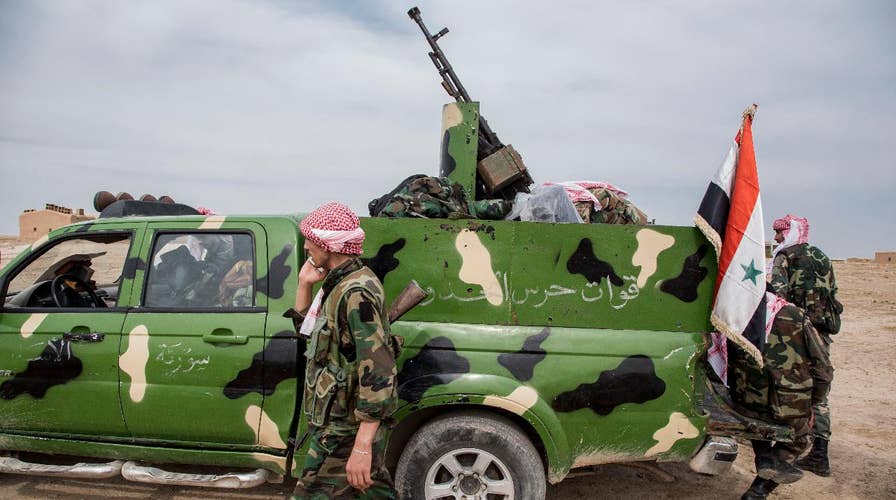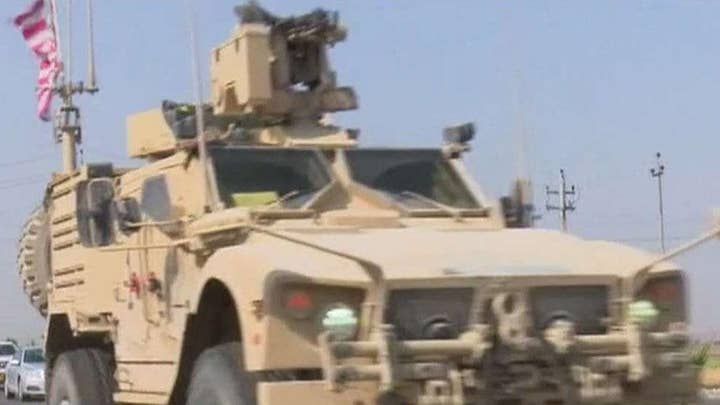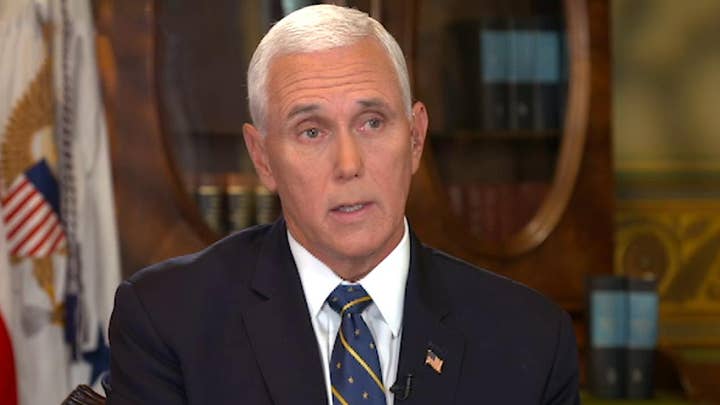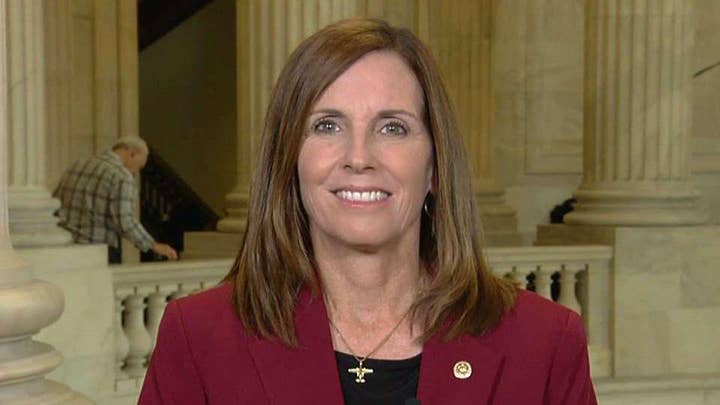US-brokered temporary cease-fire in Syria expires
Turkey warns it will ramp up its assault against the Kurds if any fighters are left in northeastern Syria; Steve Harrigan reports from Erbil, Iraq.
Senators on both sides of the aisle pressed President Trump’s Special Representative for Syria Engagement on Tuesday about America’s withdrawal of troops from northern Syria ahead of Turkey’s recent invasion of the region.
James Jeffrey, a career diplomat who also oversees Washington’s role in the global fight against the Islamic State, told lawmakers on the Senate Foreign Relations Committee that he does not believe the troop withdrawal added to Turkey’s decision to invade northern Syria. Jeffrey, however, did concede that if U.S. forces had been told to stand their ground amid a Turkish invasion, Ankara may have thought otherwise about crossing the border.
“If U.S. troops had been given an order to stand and fight against a NATO ally, Turkey would have thought otherwise,” he said.
IRAQ'S MILITARY SAYS US TROOPS LEAVING SYRIA DON'T HAVE PERMISSION TO STAY IN THE COUNTRY
Sen. Ben Cardin, D-Md., pressed Jeffrey over the decision making process about removing U.S. soldiers from northern Syria and whether the special representative agreed with Trump’s move. Jeffrey evaded Cardin’s probe, saying only that he was not consulted before Trump made his choice to pull troops from the region.
“Presidents have to make a decision,” Jeffrey said before being cut off by Cardin.
Jeffrey’s testimony came shortly after Presidents Vladimir Putin of Russia and Recep Tayyip Erdogan of Turkey announced an agreement Tuesday to jointly patrol almost the entire northeastern Syrian border after the withdrawal of Kurdish fighters.
The announcement came as Kurdish fighters completed their pullout from a section of the Syrian-Turkish border as required by a U.S.-brokered cease-fire that was set to expire Tuesday night. Together the arrangements transform the map of northeast Syria, leaving Turkey in sole control over one section in the middle of the border, while Turkey, Russia and the Syrian government will have hands in the rest.
AMERICAN TROOPS LEAVING SYRIAN CITY CONTROLLED BY KURDS PELTED WITH POTATOES, TOMATOES
The deployments replace American soldiers, who for five years battled alongside Kurdish-led fighters and succeeded in bringing down the rule of the Islamic State group across a third of Syria at the cost of thousands of Kurdish fighters' lives.
Trump initially announced his intention late last year to begin withdrawing troops from Syria, a decision that prompted the resignations of Defense Secretary Jim Mattis and Brett McGurk, special presidential envoy for the global coalition to defeat ISIS.
At the time, there were about 2,000 American troops deployed to Syria.
The U.S. pullout announced last week largely abandoned Syrian Kurdish allies who have fought the Islamic State group alongside U.S. troops for several years. Between 200 and 300 U.S. troops are to remain at the southern Syrian outpost of Al-Tanf.
The U.S. abandonment of their Kurdish allies and the possibility of a re-emergence of ISIS dominated much of the hearing, with both Republican and Democratic lawmakers both criticizing Trump’s decision to pull out troops.
KURDISH MILITARY LEADER SAYS HIS FIGHTERS STILL WANT TO WORK WITH AMERICA
“I think it is extraordinary to me, that the United States of America cannot stand up to our friend and ally, Turkey, and get Turkey to negotiate prior to coming in and crushing our allies the Kurds in Northeast Syria,” Sen. Mitt Romney, R-Utah, said.
Sen. Chris Coons, D-Del., added: “President Trump has not just betrayed our Kurdish allies and made us and our allies less safe by allowing for the release of ISIS hardened fighters, but he's also ceded important ground to Russia.”
Under a 10-point deal, Russia and Turkey have given Kurdish fighters 150 hours starting at noon Wednesday — meaning, until next Tuesday at 6 p.m. — to withdraw from the border.
Russian and Syrian government forces would move into that area immediately to ensure the Kurdish fighters pull back 20 miles from the border. Then at the end of the 150 hours, Russian-Turkish patrols would begin along a 6-mile wide strip of the border.
The exception would be the region around the town of Qamishli at the far eastern end of the border, which has some of the densest Kurdish population. Russian and Turkish officials did not immediately say what the arrangement would be around Qamishli.
The U.S. withdrawal of troops from northern Syria does not mean that the soldiers will be returning stateside. Instead, the White House said it would instead redeploy more than 700 to western Iraq to help counter ISIS, despite the Iraqi military saying those U.S. troops don't have permission to stay in the country.
CLICK HERE FOR THE FOX NEWS APP
Defense Secretary Mark Esper said Tuesday he planned to talk to Iraqi leaders to work out details, adding that the U.S. has no plans to have the troops stay in Iraq "interminably." Esper is to speak with the Iraqi defense minister on Wednesday and said he would underscore that the aim is to pull U.S. soldiers out and "eventually get them home."
Hogan Gidley, the White House principal deputy press secretary, said Tuesday that Trump remains committed to bringing the troops back to the U.S.
"That was his goal when he ran for office," Gidley said. "That's what he wants to do now. But he also wants to ensure stability in the region."
The Associated Press contributed to this report.









